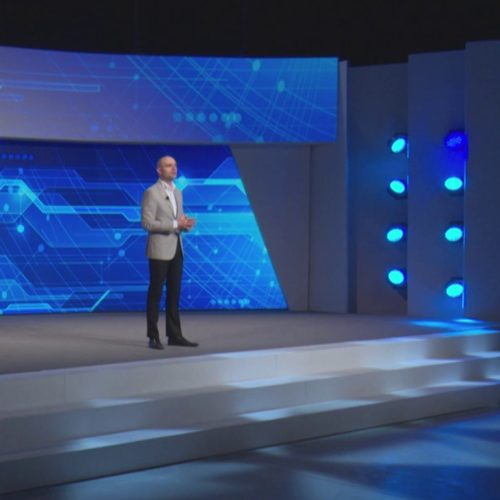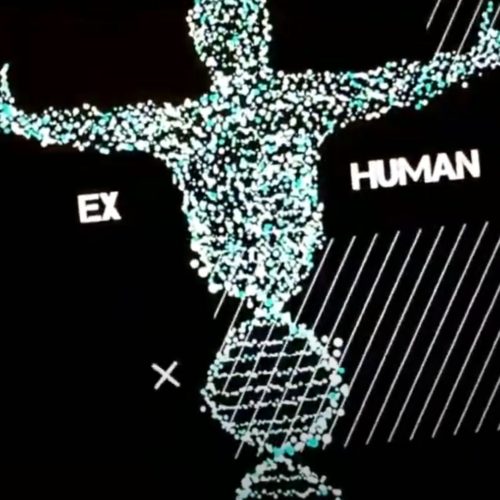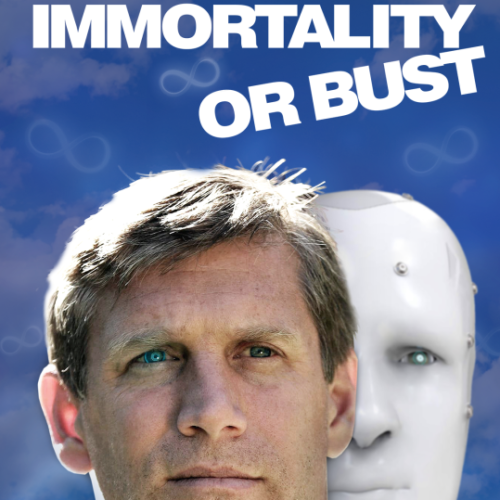UBET: A Practical Answer to Technological Unemployment
 Many people who think about the future believe that robots and artificial intelligence will take most of our jobs, while many other futurists believe the advances in technology will transform work and create a net increase in jobs. Neither of the aforementioned camps can agree on a set timeline for any of this so we end up with the conclusion that at some point in the future, perhaps starting today or perhaps decades away, we may or may not see an extreme spike in unemployment due to advancements in technology and automation. Furthermore, we may or may not be able to find gainful employment for these people at some point in the remainder of their lifetimes. The solutions to these extreme positions range from a Universal Basic Income (UBI) on one end, to business as usual on the other. What we need is a practical solution that does not break the bank with unneeded entitlements if unemployment does not skyrocket and yet, accommodate the needs of millions of unemployed and obsolete workers if it does.
Many people who think about the future believe that robots and artificial intelligence will take most of our jobs, while many other futurists believe the advances in technology will transform work and create a net increase in jobs. Neither of the aforementioned camps can agree on a set timeline for any of this so we end up with the conclusion that at some point in the future, perhaps starting today or perhaps decades away, we may or may not see an extreme spike in unemployment due to advancements in technology and automation. Furthermore, we may or may not be able to find gainful employment for these people at some point in the remainder of their lifetimes. The solutions to these extreme positions range from a Universal Basic Income (UBI) on one end, to business as usual on the other. What we need is a practical solution that does not break the bank with unneeded entitlements if unemployment does not skyrocket and yet, accommodate the needs of millions of unemployed and obsolete workers if it does.
I think it’s safe to say these viewpoints represent the polar extremes of opinions on the subject and that the reality will no doubt fall somewhere in between. The one end of the futurists spectrum looks at self driving cars and trucks, industrial 3d printing, expert AI systems, advances in robotics, automated restaurants, etc. and comes to the conclusion that millions, or worldwide, perhaps hundreds of millions of jobs could be made obsolete in less than ten years. To further compound that, generally speaking of course, the workers in the types of jobs that will likely go first, do not have the required skillset to immediately find work within the remaining jobs available. They would point out that it’s unrealistic to expect a truck driver to find work as a programmer or a fry cook to find work as robotic repair technician.
The other end of the futurist spectrum sees this as pessimism, ludditism or a general lack of knowledge of the history of civilization. They would say this drama has played out in our past on numerous occasions with the same arguments and same outcomes. They would point out that every time technology advances these same fears are put forth and while it’s true that machines and tractors replaced many manual farming jobs, cars replaced jobs that supported the horse economy, computers replaced office support staff and the internet replaced thousands or millions of other jobs, new and better jobs have always been the end result. They may point to recent technologies such as the mobile phone revolution and look at the millions of jobs produced from apps alone and ask where are the huge losses on the other side of the balance sheet?
Furthemore they may point out that technology can also be used to increase productivity and lower the barrier of technical expertise. For instance, a technician with a basic understanding of auto mechanics utilizing augmented reality glasses could have on-the-fly access to the schematics of the specific system, videos detailing the recommended fix and even an expert AI (Think IBM’s Watson in the cloud) diagnosing and walking the mechanic through each detailed step to fix the problem down to pointing to the specific bolt to tighten in their field of vision. Technological advances made generalists such as auto mechanics eventually become specialists as modern automotive systems became more complex. New technologies could reverse this trend, vastly lowering the knowledge and expertise needed to enter a field, so that a basic understanding of mechanics is all that may be required to expertly work on the newest and most sophisticated automotive machinery.
But wait, there is a flip side to that argument as well. What if there is vast amounts of technological unemployment that happens very rapidly and much sooner than these new expert systems can come to market? What do these people do in the interim? What if the AIs behind the expert systems become so good so fast that a robot becomes a better tool for implementing the solutions they diagnose than a human? Robots after all have a large upfront capital expense but then can work twenty four hours a day in conditions that don’t requires expenditures on such things as air conditioning, they don’t need breaks or benefits and can work with precision and speed that no human can match.
This seems to be one of those issues where there are lots of very intelligent people with very thoughtful arguments, utilizing conflicting and often contradictory data, that lead them to differing conclusions along a spectrum with the extreme ends being the most interesting and vocal. That sounds like a lot of things in in the modern world as well as throughout history. We can’t even agree on when the Roman empire fell and that happened in the set stone of the distant past, not the highly variable future. It seems the best solution to such a problem would be to focus somewhere in the middle, while taking out insurance for the possibility for either extreme. Enter the Universal Basic Employment & Training (UBET) concept.
A UBET would be Universally available, but not universally given. The idea goes like this. Any citizen could sign up for the UBET program and receive a Basic Income somewhere in the range of a full time minimum wage job, but that is not set is stone. Roughly half the work week would be spent working and the other half would be spent learning. Training and Employment would go hand in hand so the people would be productive today as well as learning to remain productive tomorrow. This program would be voluntary and because of the low income earned, would not be readily abused by those looking for a free ride as they would have to work and maintain good grades. This could also supplement unemployment, lowing the liability to the insurance pool. This would not replace unemployment but would greatly lower the cost and virtually eliminate the need to extend benefit periods during recessions.
The training component could be comprised of a number of options including traditional schooling, online education, apprenticeship, internships and combinations of these and other ways to learn that are still emerging. Many countries already provide up to twelve years of schooling for their young citizens and some even beyond that. It has been proposed in my country, the United States, that the first two years beyond that, whether for general education, specific certification or vocational training, may also be covered. A UBET could utilize the same infrastructure in existence today for this sort of traditional school. A more cost effective move to online learning could be more quickly propelled forward with the infusion of students from a UBET program and the incentive for cheaper educational methods. Finally companies could be incentivized to train apprentices and interns which would potentially pay for the training of new employees at a minimal cost as their salaries would be taken care of through the UBET program and they would be further incentivized to hire them so that the expertise gained was not put to work by a competitor.
The Employment peice of the equation will create a part time workforce that is motivated and flexible to the evolving needs of business. The program could work as a giant temp agency allowing companies to fill needs as they fluctuated with their business cycles and as automation becomes a more cost effective solution. The UBET program would collect money from these employers comparable to what they would have cost as employees and defer some of the cost of the program. The companies would get motivated employees who have a brighter outlook working a job, as well as advancing their career options, while previously it would have been just a dead end minimum wage job. This would open up the possibility for small business to cost effectively take on seasonal or project based help. There would likely need to be public service work created for times when there were more workers than jobs available. These need not be “makework” jobs and should be projects of benefit to society and with a positive return on investment in societal value if not financial value.
There are three scenarios of the future of employment, generally speaking, and we will apply a UBET to each to see how they could play out. First, is the business as usual model where new jobs replace old jobs and, while individual workers may struggle, they are anecdotal and are assisted with existing programs and the economy as a whole hums along. So basically nothing really changes other than the specific jobs being displaced and like the past, when instances of change occurred, workers eventually transitioned. A UBET would immediately supplant some of the cost of unemployment and could be paid for partially by funds from that. If we had a UBET today, we would be preparing people proactively to the change we all agree is coming instead of reactively trying to deal with people with lost income and shattered lives. It would also lessen the impact of recessions and fluctuations in the normal business cycle.
If a UBET never needed to expand beyond the needs of today it would serve a tremendous need as well as possibly end the stigma of some existing social programs. People would be working while receiving benefits and this would make this social program more politically palatable as well. This would also allow for people who have given up looking for work, and who are not counted by the government currently as unemployed, to find gainful employment. A UBET would have the possibility of turning financial aid on its ear by making it a giant work study program. This of course would be voluntary and while may stretch out the time it takes to graduate for some students, it would allow for creating work habits and for some, internships and apprenticeships to help further prepare these students for work.
The next scenario is one where the unemployment rates soars like a hockey stick on a graph. Many who see this eventuality propose a Universal Basic Income (UBI) as a solution. A basic minimal income given to everyone, with no means testing, would allow people to lose their income by choice or by chance, and not be destitute. Critics point out that replacing a truck driver’s salary with the equivalent of a minimum wage with no prospect of ever increasing it is a remedy to prevent starvation and homelessness but not much else. While a UBET would not provide any more income, the training and education would allow the prospect of increasing their income to a more desirable wage and standard of living.
Implementing a UBI after a massive wave of unemployment would be financially burdensome on an economy rocked by such an event. Implementing it now would be extremely costly and in most countries politically impossible. A UBET is certainly not free but it is universally available, not universally given and as such would scale in cost only in proportion to the problem. If the optimists are correct and we have implemented a UBI we would have introduced a huge cost burden to society when it was not needed or at least not needed on a such a scale. Some would argue that a UBI would be an incentive for people to not work and thus would garner resentment from people who do work, while a UBET would be an incentive for all people to work and contribute to society and therefore the cost would be much more tolerable.
The final scenario is that the future will be somewhere in the middle of these extremes. Maybe there is greater unemployment than there is now for periods of time or maybe permanently. Maybe some jobs go away forever and their former workers never find new employment but other jobs evolve. The arguments still remain for doing nothing and for implementing a universally applied solution, the only difference is the scale of the reason neither of these actions is the best solution. Maybe the job market will remain as it has been for many years or even decades but on a far enough timeline we can see where human work will not be required for society to function and another method of income, such as a UBI will eventually be needed. What we are really arguing about here is the timeline and speed of these events unfolding. Will the need for work disappear all at once in a decade or less? Will humans still be working in an economy like that of today a hundred years from now? How about in a thousand years? We don’t know and so the solution we need is one that will scale with the problem and one that is politically and economically viable in the near term.
We need a practical answer to the problem of technological unemployment. If it will happen suddenly and across a significant percentage of our workforce, then a Universal Basic Income may be our best bet to allow people to survive and avoid destitution. On a far enough timeline, it seems likely that human work will not be required for the wheels of society to turn therefore necessitating some sort of scheme such as a UBI. As some believe, technological unemployment may unfold at a slower speed and in conjunction with new employment created by technology. Most likely is a future somewhere in between these polar extremes where what is needed is a solution that scales with the problem and maximizes human production by helping fulfill human potential. A UBET program would allow people to earn an income while learning the skills needed for the jobs technology will create. To do nothing seems foolhardy and yet to implement a UBI, assuming it would ever be politically viable, would be a extremely costly solution to a problem that may never arise to a scale justifying such an expense. A UBET is a politically viable, cost effective solution to problems we have today that is also a scalable solution that can handle the problem of technological unemployment no matter the speed or scale.
About the Author:
Topher Cliver is a writer, digital media professional, futurist and transhumanist who lives and works in the city of Atlanta in the United States. He is the author of the novel Plato’s Dream: Crisis of the Employment Singularity. You can find more about him on http://www.platosdreambook.com.
Related Articles
- Marshall Brain on Singularity 1on1: We’re approaching humanity’s make or break period
- Will technological unemployment impoverish us?
- Singularity 1 on 1: Jeremy Rifkin on the Zero Marginal Cost Society and the Decline of Capitalism
- Will Work For Free: A Doc About Technological Unemployment
- Economic Possibilities for our Grandchildren by John M. Keynes
- Martin Ford on Singularity 1on1: Technological Unemployment is an Issue We Need To Discuss








